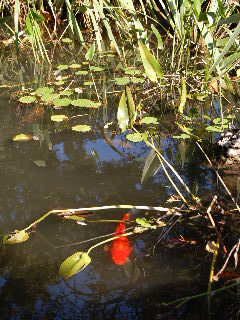
As a youngster, the garden was a 40’ X 60’ plot of land that was turned annually with a moldboard plow and worked down with a disk harrow.
This work was done by a neighboring farmer using his big John Deere tractor. Mr. Stanley was his name and farming was his game. He was a pro. In the early spring, he would break up the soil of most anyone in the neighborhood (for a small payment) who was going to plant a vegetable garden.
I can still remember the magical smell of that newly turned loam; it was as if a treasure chest had been opened, and the valuables that would later be found within it would be the colorful consumable riches of brilliant red tomatoes, shiny green bell peppers, yellow and white sweet corn, yellow squash and orange pumpkins.
On one side of the garden, the last seeds to go in would be a row of zinnias planted by my mother. Once they came up and started blooming, the colorful blossoms would continue all summer long, some to be cut and brought into the house to make a bright bouquet for the kitchen table, some to be cut and given away to neighbors, family, and friends.
This is what I knew a garden to be, an area that produced consumable goods bordered by a row of zinnias.
One summer, my family took a vacation trip to Myrtle Beach, South Carolina. A side excursion to this week-long adventure was a day trip to Brookgreen Gardens. This was the first formal garden setting I had ever encountered. There were statues of rearing horses and of maidens pouring water from concrete vases, vast stretches of neatly manicured lawn, precisely trimmed and shaped hedges that curved and swirled to form a green maze; expanses of flowing walkways that led to flowing gurgling fountains that emptied into geometrically shaped pools that contained a great variety of colorful fishes swimming about.

There were live peacocks strutting beneath majestic oak trees; there were great masses of brilliantly colored flowers beside carefully placed garden benches. And. . . . . . not a tomato plant or corn stalk in sight!
This was a garden that obviously required lots of physical work, and yet it produced nothing more than beauty, awe, tranquility, and a treat for the senses. What a radical idea for a green bean grower like me to absorb; somehow it seemed fair.
During my college years, I worked summers on the municipal golf course. What an unusual gardening job this was; we only grew one crop—grass, and all we had to do with it was grow it and mow it, grow it and mow it, grow it and mow it, . . . . you get the idea. But I loved it, and I actually came to learn quite a lot about the irrigation system, the precision mowing equipment required, and about bentgrasses and their cultural needs.
Gardens exist in many forms and for many purposes. There’s herb gardens, rock gardens, water gardens, Japanese gardens, formal gardens, vegetable gardens, and on and on. Wherever your garden visions and adventures take you, I wish you the best. Keep your mind and your senses open and be grateful for the journey whether it leads you down the formal path or to the pumpkin patch.
Have a happy time along the garden trail as you enjoy the garden view and listen to the garden voice!
 As a youngster, the garden was a 40’ X 60’ plot of land that was turned annually with a moldboard plow and worked down with a disk harrow.
As a youngster, the garden was a 40’ X 60’ plot of land that was turned annually with a moldboard plow and worked down with a disk harrow.
 There were live peacocks strutting beneath majestic oak trees; there were great masses of brilliantly colored flowers beside carefully placed garden benches. And. . . . . . not a tomato plant or corn stalk in sight!
There were live peacocks strutting beneath majestic oak trees; there were great masses of brilliantly colored flowers beside carefully placed garden benches. And. . . . . . not a tomato plant or corn stalk in sight!